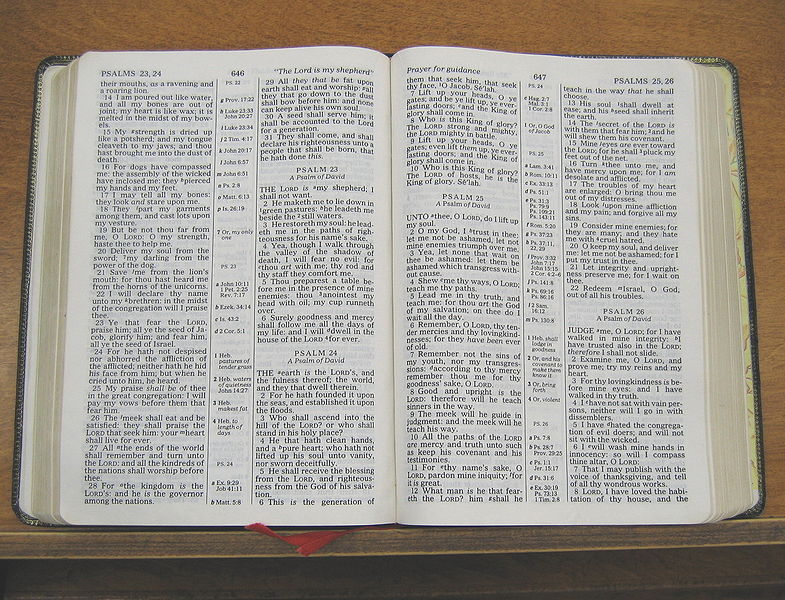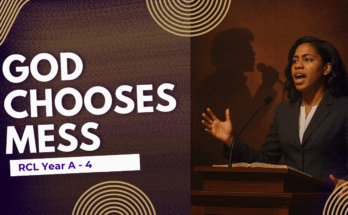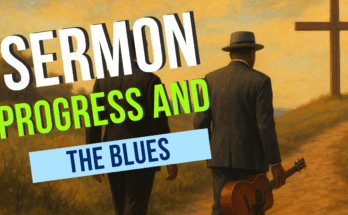As an Amazon Associate I earn from qualifying purchases.

This is a common question that comes up from time to time. I feel like I might be stepping into the lions den in answering it, but here goes. First, one must recognize that there are two issues here. Which version to use when preaching and what version should you use in preparation? I will write about the preparation piece in a few days. There I will argue that you should use many versions, but that is for another post.
As to which version to use in preaching, personally, I like to use the King James version whenever possible. However, I believe it is best to use the translation that is the accepted translation in the congregation that you are preaching. I’ve been in congregations where the New American Standard Bible (NASB) is the default translation. So even though I might use the KJV and other translations in exegesis, when it is time to preach to those congregations, I use the NASB.
From my perspective, it’s not something to battle over. I wouldn’t use the New International Version (NIV) in some congregations that believe the NIV is evil. There are some congregations that believe that other translations are problematic. Unless you want to go and teach people why different translations are used and how they were created then you should use the translation that they use. If you ain’t talking about translations in your sermon then use their translation. Now a default acceptable translation in most places is the King James. However, there are some places where to use such a translation will cause issues. Again the question becomes do you want to address the issues in your sermon, or do you want to preach your sermon?
Again, I am not talking about the translation(s) used in preparation. I will argue in another post why we should use a multitude of translation. I am arguing here that in presentation, you must be careful to take the “hearers” of your sermon into consideration. Don’t close their ears on you over a translation – unless you’re making a statement about Bible translation. Unless that is your point, then I would say, use the translation that’s operative in that particular congregation.
Amazon and the Amazon logo are trademarks of Amazon.com, Inc, or its affiliates.







100% agreement with the premise of this article. Being that I rotate around, speaking in a different church each week,taking about 10 to a5 weeks to return to each one. I have come to know if there is a passionate preference to a specific in any of those churches. If they are apt to close out the message due to their insistence on the use of the King James, then I use the King James.
Most of the time I routinely use the New King James as it is so very closely consistent with the King James but without the archaic “old English” language structure. But, once again, if a church as a whole is comprised of King James “die-hards”, I always use the King James.
Now, having stated the preceding policy that I follow,I do frequently pose the question to hard-core King James adherents; “How do you suggest people in other nations, that do not speak, read or understand English whatsoever adhere to the King James alone?” I then follow with another question; “Are not Bibles in Chinese, Russian, Italian, Farsi, Spanish ALL translations that ARE NOT King James? Shall we require that all people of the earth first learn English so that they may then comprehend what is contained in the King James?” The # 1 initial response that I receive is, “…what is Farsi?…”.
While I do own an NIV Bible that I will refer to during study, I NEVER carry it into the pulpit. The NIV is not a complete and entire Bible as there are numerous entire verses that have been left out of it. For that reason, and that many Christians of varying denominations reject the NIV, I so wish that our Sabbath School Lesson Guides DID NOT use the NIV almost exclusively. In my own personal opinion the NIV should never be used in public venues by teachers, preachers and discussion leaders.
Ilike the NASB for preparation and the ESV for reading.but I agree with using an assortment of good versions for study.I have to admit, I’m not a big fan of the KJV and I don’t think its the best version out there, but at the end of the day,as long as its God’s word, it’s all good!!
On the KJV…
I love the KJV partially because of its reading. I mean “Carest thou not that we parish?” just flows off the tongue so much better than “Do you care That We are going to die?”
I do admit that this is probably due to it being the translation of my youth. I also know that there are some things that are hard to understand in it. I would also emphasize again that I am talking about presentation and not preparation. In prep use a lot of versions, in presentation use a few.
In any case, I will not allow my love for the KJV stand in the way of understanding.
On the NIV…
I think we must be careful when using such terminology as “the NIV left out passages.” The simple fact of the matter is that this was due to the manuscripts that were chosen in the NIV and some of the newer translations. Also to say something was “left out” is to already assume that the manuscripts used in the KJV are the standard, which is the original question.
If one used the NIV as the standard then one could just as easily say that the KJV added things…So before you can say something is left out, you must prove that it should have been in there to begin with through textual analysis…
Also there is the added question of translational philosophy. But all of this is more than I wanted to deal with here. Maybe in the future.
On the “Best Version Out There”
I don’t think there is a “Best version out there.” At the end of the day, if it takes you reading the New Living Translation or the ESV to understand the scriptures, then I would suggest that that is more important than reading any translation that is not understood.
More to Come
I have a post coming up on “preparation and Bible Versions” where I suggest that you use at least four versions in prep…There will probably be another post where I discuss why it is important to use mostly ONE translation in any particular sermon….stay tuned to see what they are and why….
I believe that as long as the biblical and/or theological point of a given text is properly exegeted and an application of the text surmised and given to the hearers, the version you use to preach with shouldn’t matter that much. The issue in my mind is not what text you use to preach with; the issue is how accurate is the preacher’s exegesis. Exegetical work properly done, sometimes involves reading several translations, commentaries and concordances; understanding Jewish thought and customs; understanding the type of writing i.e., poetry or prose, etc., figuring out the meaning of a word in the text that has multiple meanings in the original language that it was written; thus deriving the appropriate meaning based on the context in which the word appears.
I was taught when i first started preaching that you should always start out with King James even if you use another translation
The KJV battle is only fought among church people. My friend Dave, who I meet with on Wednesday mornings for Bible Study would probably be lost with much of the KJV. All the new Christians and non-christians in our church are not aware of the debate and probably would care very little. They just want something they can understand be it KJV, NIV, NASV or the NLT.
It has been my experience that basically one’s preference of translations is generational. I have had the opportunity to preach to both mature Christian’s both Black and Anglo and the preferred translation is King James. I personally don’t put much stock in the translations, eventhough, I, have a preference. When it comes to preaching the Word of God and you’ve prepared it’s ultimately about what God wants to do and not what translation you use. God isn’t interested in the translation, but, He’s interested in if you spent time with Him so He can work in and through you.
Good answer…
I use the NKJV for preaching and teaching. During preparation I will refer to five or six translations which do include the KJV.
Well said…..when in Rome…….act like the Roman’s !
Well all have given some interesting feed back. I would consider myself a 21st century Preacher. I am cut from a different cloth. I beleive that God is just as much in Kirk Franklin’s record (STOMP) as He is in AMAZING GRACE. GOD is doing a new thing to reach the masses. The message has not change…..but the methods has and will continue to change !The King James traditionally known as the authorized version especially in the baptist churches .Which i do use as well as many other’s. I find many person’s get frustrated with it cause to them it is hard even through prayer to understand for them. All the Ye , yay. thou, bretheren’s….We don’t talk like that now…………..and the majority of society in that day didn’t talk like that then.. Only the upper class spoke like that even in that day…..so its really an excluding version with a racial tone. So for clarity i may read from the king James first then read out of the new living translation.or the message bible. Depending on where i’m going in sermon thought !
I’ve often hear that the NIV contains direct quotes from the original Hebrew and Greek manuscript, however, I have not been able to prove that as of yet! If that were the case, then the KJV which most of us love would contain prehaps a little extra verbiage in its attempt to clarify and or give us a better understanding of the Holy Scripture. Perhaps one of you Scholars out there may have the truth pertiaining to whether or not the NIV is an accurate depiction of the original manuscript. Elder Cox II you touched on this thought. Let us know if this can be proven or not. It would help our over-all preaching providing a better understanding of what the Word of God meant THEN and NOW!
Example:
KJV – Ro 8:1 “There is therefore now no condemnation to them which are in Christ Jesus, (who walk not after the flesh, but after the Spirit). .
2 For the law of the Spirit of life in Christ Jesus hath made me free from the law of sin and death.
NIV – “Therefore, there is now no condemnation for those who are in Christ Jesus, —-.
2 Because through Christ Jesus the law of the Spirit of life set me free from the law of sin and death.”
If the NIV is indeed directly from the original translation, then the Scholars King James used perhaps felt that man’s involvment of walking after the flesh and not after the spirit need to be a part of Christ atonement. I can’t prove anything at this time, but that would make a difference in the understanding and purpose of the scripture.
Just a thought…
There is not one way of translating one language into another language. There are different philosophies of translation. NIV does a thought inspiration and tranlsations like KJV, NASB, NKJV, and others take a formal equivalence translation.
I don’t know what you mean “direct quotes form hebrew and greek manuscript.” There is no one greek manuscript, there are many partial manuscripts that have to be combined into one. We don’t have an original New testament manuscript. We have a large number of partial manuscripts. that is the discipline of textual criticism. (please note criticism does not mean anything negative.)
It appears that you are still studying this issue…I would encouage you to do to a couple of things…
1) Learn another language. If you don’t learn Hebrew or Greek, at least learn another language so that you can understand some of the issues that are involved in translating one language to another and the reality that there is not one way to translate one language to another.
2) Read reputable sources on both sides of the issue.
Thank you Elder cox for the insight. What I noticed is that there is a different in the over-all meaning between the KJV and the NIV when it comes to Rom. 8:1. The last part of the verse where it talks about (walking not after the flesh but after the Spirit) was either there, or not there! One says its there, the other says it not. The issue as one of the Brothers already addressed stated that it seems like the KJV could have added to, or the NIV could have failed to mention. Either way it makes a strong statement.
The difference in the versions tend to show that one needs our imput and the other doesn’t! One shows that we are NOT condemned in Christ Jesus period. The other shows that we are NOT condemned in Christ Jesus only if we walk NOT after the flesh but after the Spirit. That’s the only point I was trying to make between the two versions. It is unknown to me at this time which is correct. Will do further research. Once again, thank you for your insight. Great topic of discussion…
Yes,
Understanding how we got the Bible is an important and challenging question.
I suggest to you either you are a leader,preacher or teacher to make adequate research as led by the SPIRIT for we will all given an account of all our messages,but i notice that KJV moves you to make more reseache through other versions & dico.but i think it is best to start with KJV when preparing… 2 Tim 3:16 All scripture is given by inspiration of God, and is profitable for doctrine, for reproof, for correction, for instruction in righteousness: God is the author of this life manual called “THE BIBLE”, with a warning in Rev 22:18 For I testify unto every man that heareth the words of the prophecy of this book, If any man shall add unto these things, God shall add unto him the plagues that are written in this book: 19And if any man shall take away from the words of the book of this prophecy, God shall take away his part out of the book of life, and out of the holy city, and from the things which are written in this book. this is direct to the church leaders in perticular and version writer.Please I suggest to you either you are a leader,preacher or teacher to make adequate research as led by the SPIRIT for we will all give an account of all our messages,but i notice that KJV moves you to make more reseaches through other versions & dico .but i think it is the best to start with KJV when preparing…
SHALOM
GOD BLESS YOU ALL
Why do you suggest that you start with the King James Version?